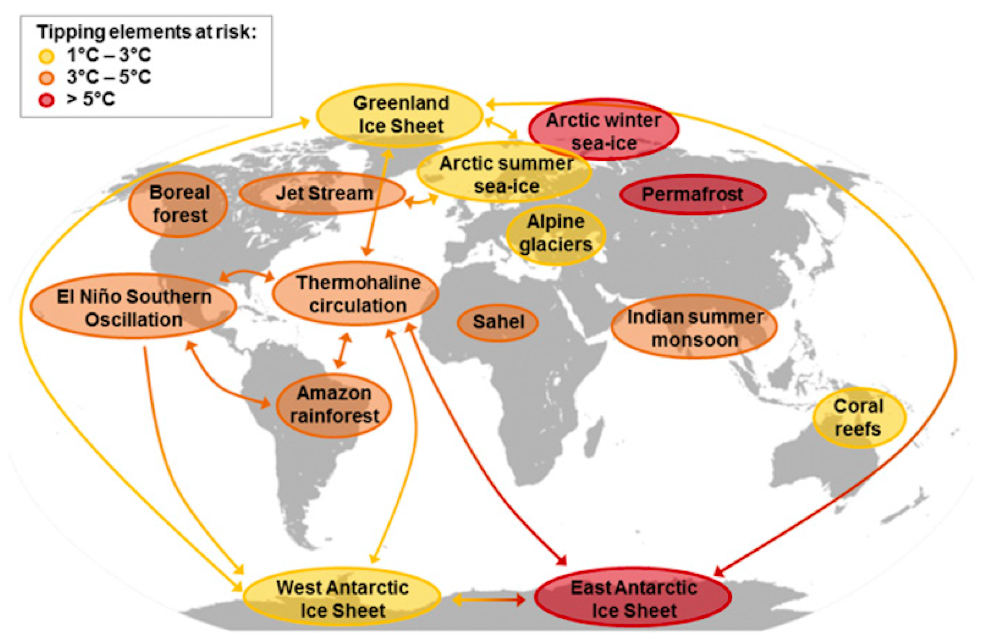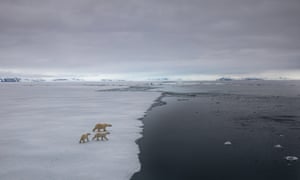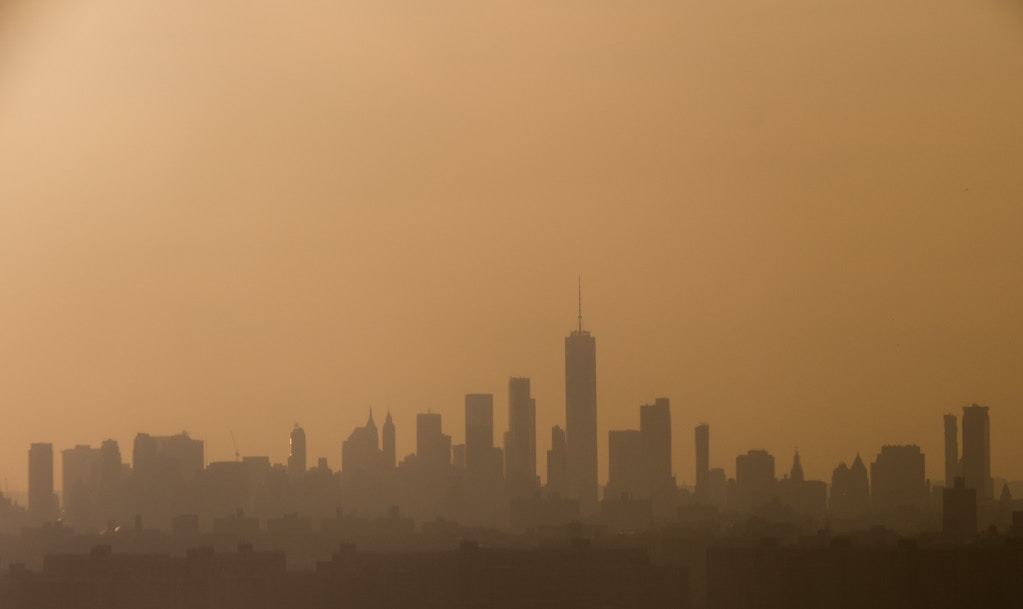Following what goes on with oil and gas exploitation in and around Adrian, Michigan since 2013 - and how these events in our little city connect to the global environmental situation... - with the occasional sidetrack to other related environmental issues in Lenawee county, Michigan and how those relate to global issues.
Thursday, August 16, 2018
Friday, August 10, 2018
Hothouse Earth: here's what the science actually does – and doesn't – say
Hopefully it is not as dire but we MUST act fast anyway. We need to mitigate carbon: leaving it in the ground (no more fossil fuels NOW), in peat, and in forests - and regenerate forests and other natural ecosystems on a large scale. Our agriculture MUST change to restorative practices, we need to change our diet and lifestyle, and control human population. Then we might have a chance – if we wisely adapt to what will be inevitable already…

Global map of potential tipping cascades, with arrows showing potential interactions. Steffen et al / PNAS
Hothouse Earth: here's what the science actually does – and doesn't – say

Global map of potential tipping cascades, with arrows showing potential interactions. Steffen et al / PNAS
Hothouse Earth: here's what the science actually does – and doesn't – say
Thursday, August 9, 2018
Domino-effect of climate events could move Earth into a ‘hothouse’ state | Environment | The Guardian
We have very limited time to act!
Domino-effect of climate events could move Earth into a ‘hothouse’ state
Leading scientists warn that passing such a point would make efforts to reduce emissions increasingly futile

A domino-like cascade of melting ice, warming seas, shifting currents and dying forests could tilt the Earth into a “hothouse” state beyond which human efforts to reduce emissions will be increasingly futile, a group of leading climate scientists has warned.
Full story: Domino-effect of climate events could move Earth into a ‘hothouse’ state | Environment | The Guardian
Full story: Domino-effect of climate events could move Earth into a ‘hothouse’ state | Environment | The Guardian
Tuesday, August 7, 2018
EPA is now allowing asbestos back into manufacturing - Archpaper.com
Another example for America - not Number 1 but backwards...This is pure murder!

The U.S. Environmental Protection Agency has enacted a SNUR (Significant New Rule) allowing companies to use new asbestos-containing products on a case-by-case basis. (Courtesy Mesothelioma + Asbestos Awareness Center)
One of the most dangerous construction-related carcinogens is now legally allowed back into U.S. manufacturing under a new rule by the Environmental Protection Agency (EPA). Fast Company recently reported that on June 1, the EPA authorized a “SNUR” (Significant New Use Rule) which allows new products containing asbestos to be created on a case-by-case basis.
EPA is now allowing asbestos back into manufacturing - Archpaper.com

The U.S. Environmental Protection Agency has enacted a SNUR (Significant New Rule) allowing companies to use new asbestos-containing products on a case-by-case basis. (Courtesy Mesothelioma + Asbestos Awareness Center)
One of the most dangerous construction-related carcinogens is now legally allowed back into U.S. manufacturing under a new rule by the Environmental Protection Agency (EPA). Fast Company recently reported that on June 1, the EPA authorized a “SNUR” (Significant New Use Rule) which allows new products containing asbestos to be created on a case-by-case basis.
EPA is now allowing asbestos back into manufacturing - Archpaper.com
Monday, August 6, 2018
Production of methane and ethylene from plastic in the environment
Plastic Is Even Worse for the Earth Than We Thought
We already knew plastic waste releases toxic chemicals into the environment and can injure and kill marine life. Now, scientists say decomposing plastic does this, too.
Production of methane and ethylene from plastic in the environment
We already knew plastic waste releases toxic chemicals into the environment and can injure and kill marine life. Now, scientists say decomposing plastic does this, too.
Production of methane and ethylene from plastic in the environment
Saturday, August 4, 2018
Capitalism Killed Our Climate Momentum, Not “Human Nature”
A small but important correction of the NY Times story I shared earlier well written by Naomi Klein. The small difference actually changes the whole perspective from us not acting on climate change because humans are too stupid to very avoidable if we chose a better system than capitalism.

The skyline of Manhattan at sunset in New York, May 23, 2018. Photo: Saul Loeb/AFP/Getty Images
Capitalism Killed Our Climate Momentum, Not “Human Nature”

The skyline of Manhattan at sunset in New York, May 23, 2018. Photo: Saul Loeb/AFP/Getty Images
Capitalism Killed Our Climate Momentum, Not “Human Nature”
Friday, August 3, 2018
Losing Earth: The Decade We Almost Stopped Climate Change - The New York Times
Hope we will not lose another decade!
This narrative by Nathaniel Rich is a work of history, addressing the 10-year period from 1979 to 1989: the decisive decade when humankind first came to a broad understanding of the causes and dangers of climate change. Complementing the text is a series of aerial photographs and videos, all shot over the past year by George Steinmetz. With support from the Pulitzer Center, this two-part article is based on 18 months of reporting and well over a hundred interviews. It tracks the efforts of a small group of American scientists, activists and politicians to raise the alarm and stave off catastrophe. It will come as a revelation to many readers — an agonizing revelation — to understand how thoroughly they grasped the problem and how close they came to solving it.
Full Story: Losing Earth: The Decade We Almost Stopped Climate Change - The New York Times
This narrative by Nathaniel Rich is a work of history, addressing the 10-year period from 1979 to 1989: the decisive decade when humankind first came to a broad understanding of the causes and dangers of climate change. Complementing the text is a series of aerial photographs and videos, all shot over the past year by George Steinmetz. With support from the Pulitzer Center, this two-part article is based on 18 months of reporting and well over a hundred interviews. It tracks the efforts of a small group of American scientists, activists and politicians to raise the alarm and stave off catastrophe. It will come as a revelation to many readers — an agonizing revelation — to understand how thoroughly they grasped the problem and how close they came to solving it.
Full Story: Losing Earth: The Decade We Almost Stopped Climate Change - The New York Times
Subscribe to:
Comments (Atom)
